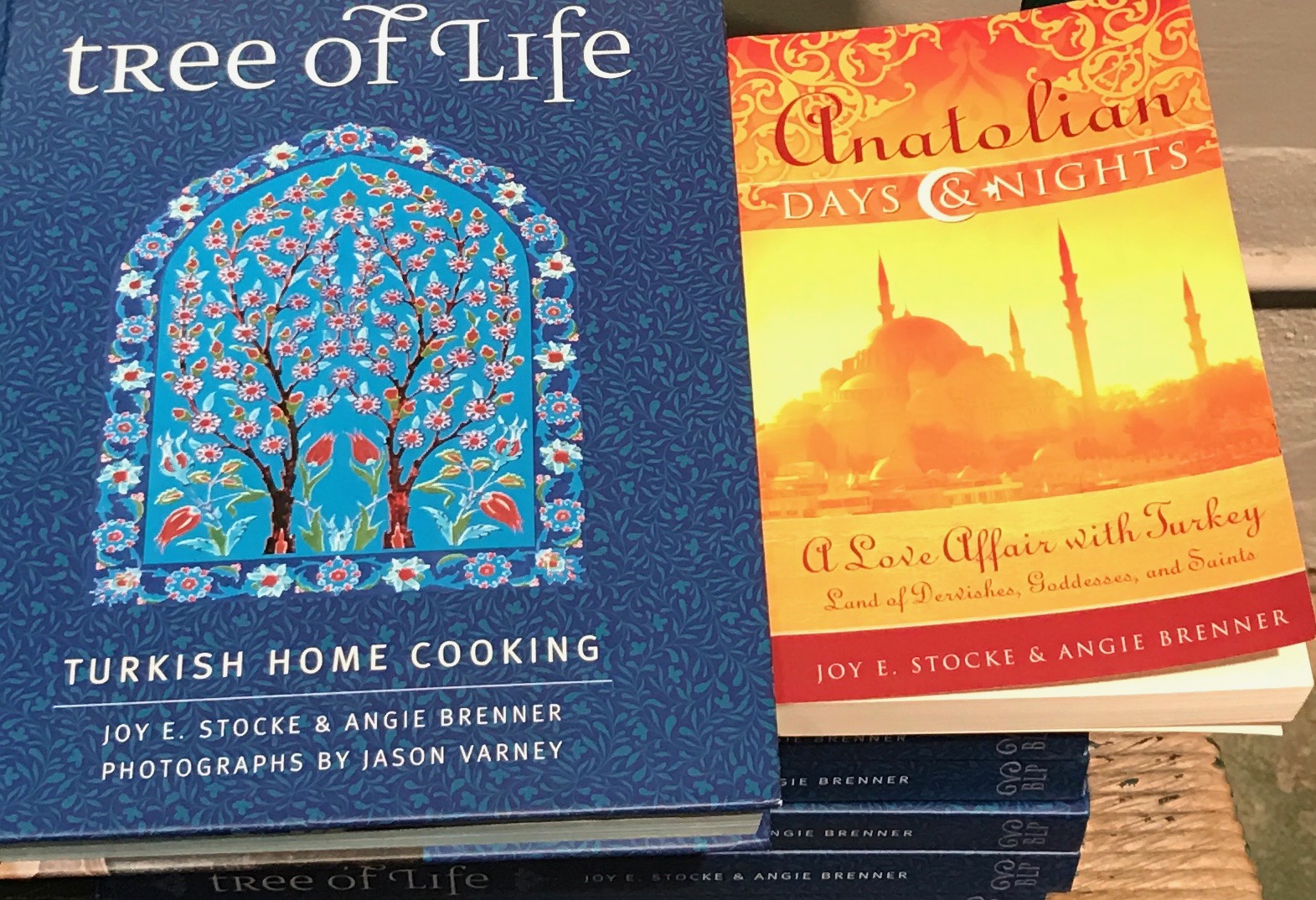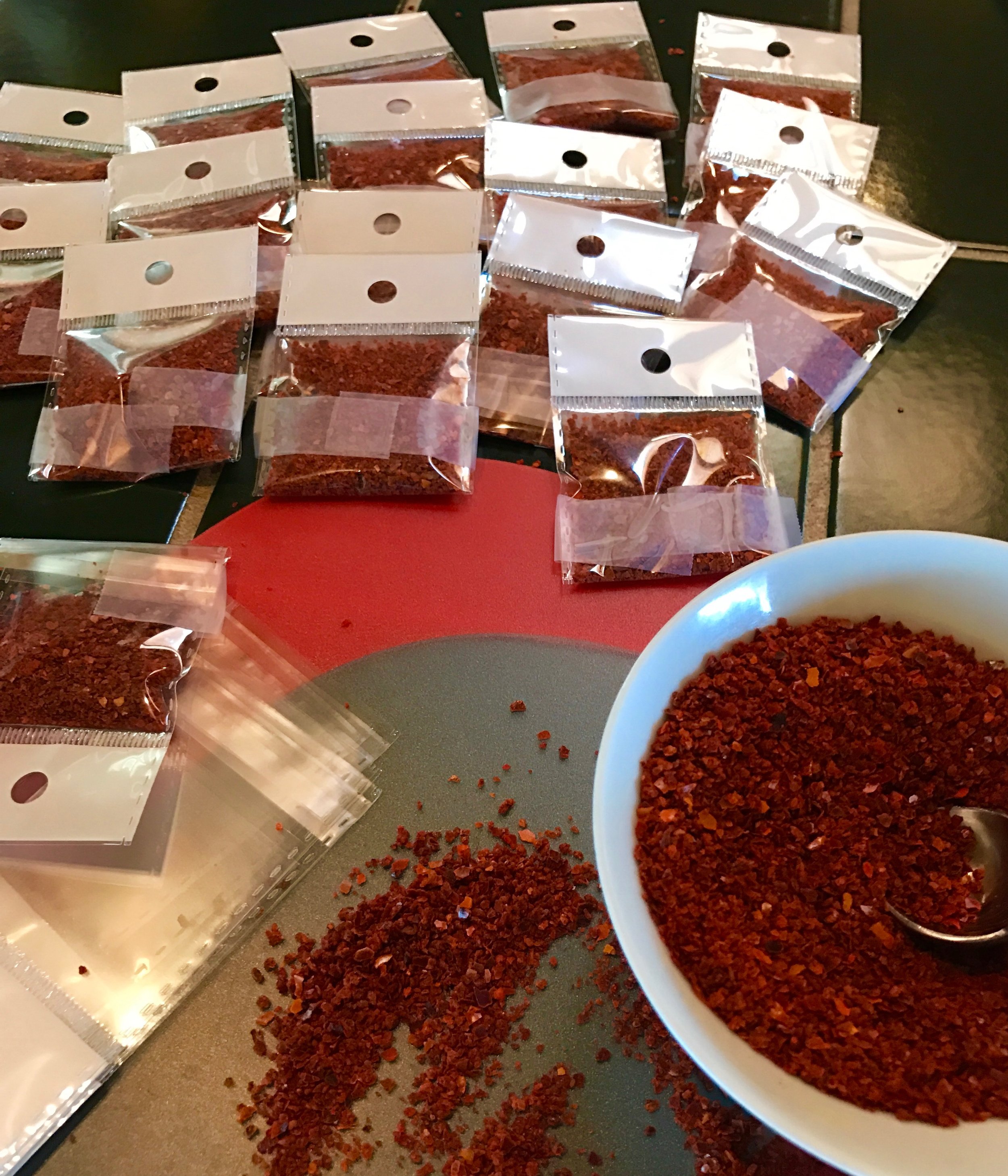'Tree of Life': Turkish cookbook, storybook, sustainable friendships-Philadelphia Inquirer
I have never traveled to Turkey. My pantry is not stocked with Aleppo pepper, walnut oil, grape molasses, pomegranate molasses, or (I do confess) dried sumac. I do own a stand mixer and a dough hook, but (embarrassingly) I have not used it. I used to have a nice, crisp roll of parchment paper, but I'm out of it now. I have about three dozen recipes I can faithfully deliver, but after that, I'm rather wobbly-kneed. I'm not as brave above a pot as I should be.
Doesn't matter. I love Tree of Life, this new book of Turkish recipes, stories, and the good kind of intrigue by the intrepid coauthoring team of Joy E. Stocke and Angie Brenner (with lavish photographs by Jason Varney). I love Burgess Lea Press, the publisher, for the care it has given to the design and production of this visually flavorful book and for its promise to donate "100 percent of our after-tax profits to food-related causes." I love the way the people of Turkey are honored on these pages - the lore and the living, the kitchens, bowls, and spoons, the hammered-copper Turkish coffeepots known as cezveler.
There's just so much goodness here. Rising up from these words and pictures are the aromatics of fresh mint and blackened peppers, the sounds of rinse and chop and sizzle, the laughter of friends joining friends not just to eat but to share in the making of a meal.
Stocke and Brenner, who collaborated on the memoir Anatolian Days & Nights: A Love Affair with Turkey, Land of Dervishes, Goddesses, and Saints, take us to the kitchens and markets and street scenes of their beloved Turkey, to charmingly run-down hotels and singular pots of broth and drinks still cherished at dawn. Every recipe has a story, an origin, a twist. Every recipe page has an extra tipping-in of text and experience.
Turkey, we learn, is a land where a girl found among ruins in the Mediterranean coast "gathers olives that have fallen to the ground and studies us, two women in sunglasses, shorts and hiking boots" then "places a handful of the bitter, green fruit on a stone ledge, an offering," before she scurries away. It is a place where stuffing grape leaves is a communal affair and women "pride themselves on making the thinnest, tightest sarmas, often using an index finger to indicate that they must not be any thicker." It is a place where the white coats of dervishes were "like clouds as they moved in slow, sweeping circles." It is a place where eggplants are found drying in the sun and Kalkan marketplaces are "mosaics" of fresh herbs and vegetables and pide bread is kneaded in outdoor kitchens by women who smile knowingly for cameras.
There are no political updates on Turkish President Recep Tayyip Erdogan in these pages. No warning about crackdowns or intrusions, abuses of power. It is as though the democracy of kitchens and spices, folklore and dill exerts more power than the authoritarian impulses of a government, and, right now, especially, one must hope that this is true. That, in gathering together, in preparing meals for one another, in adapting one culture's lineage of dishes to another's, in using food to transcend (and break down) borders, we are at our most egalitarian and human.
Come to my table. Sit. See what I've made. That's the sustainable politics of today, and that is what we find in Tree of Life.
Beth Kephart is the author of 21 books and a cofounder of Juncture Memoir Workshops, www.junctureworkshops.com.

